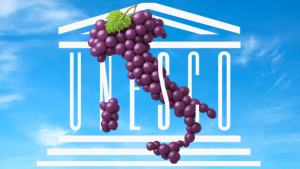"According to IWSR, online sales of alcoholic beverages in major international markets are expected to grow by over 9 billion euros between 2021 and 2026"
The world of Italian wine and food has always exerted an irresistible charm on a wide range of consumers worldwide.
In recent years, especially after the Covid-19 pandemic, Italian wine companies have discovered a new frontier to expand their presence and directly connect with global customers: the direct-to-consumer (D2C) E-commerce channel.
This channel offers an unprecedented opportunity to increase sales and strengthen customer loyalty, transforming a one-time purchase into a long-lasting relationship. The key to this success lies in the ability to start building customer loyalty from the tasting experience and continue it online.
According to the IWSR (International Wines and Spirits Record), online sales of alcoholic beverages in major international markets are projected to grow by over 9 billion euros between 2021 and 2026, which translates to a +34% increase compared to pre-pandemic levels.
E-commerce numbers in the Italian Wine Sector
Despite the opportunities offered by E-commerce, relatively few Italian wine companies have embraced this new digital sales channel.
Specifically, only 57.4% of wineries have their own E-commerce platform and an even smaller percentage of companies conduct online sales outside of Italy’s borders. This is mainly due to the complexity of managing customs and excise taxes. As a result, foreign consumers find it almost impossible to reorder Italian products remotely and are forced to turn to local retailers, who rarely carry the same products.
Overall, wineries remain mostly focused on in-person sales, with only about 20% of direct-to-consumer sales taking place remotely. However, the data shows that the average order value for items purchased through E-commerce is significantly higher than for those sold on-site, with the value increasing from €79 on-site to €278 online.
Wine tourism Marketing
When it comes to wine tourism, many believe that the work of wine companies ends when customers visit the cellar, but this is not the case.
Equally important are the pre-visit phase, which involves creating an appealing offer to attract tourists, and the post-visit phase, which ensures the relationship with the customer is maintained once they return to their home country.
Customer loyalty starts with hospitality, through the sale of the products tasted and the collection of customer data. This data allows wineries to continue the relationship with targeted marketing campaigns that invite customers to reorder via E-commerce, particularly during the holidays.
With the season approaching, it is more important than ever to be prepared to fully take advantage of the opportunities created by the influx of visitors who will come to Italy in the coming months to enjoy its gastronomic and wine excellences.




